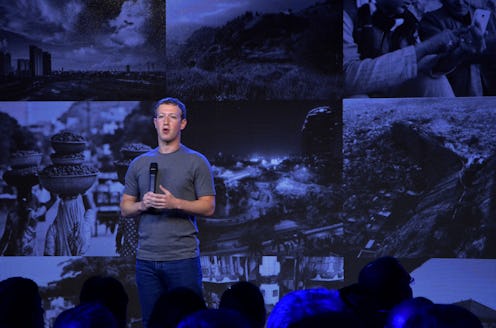Books
Zuckerberg Tackles History Of Science In Book Club
Ever found yourself at work saying the word "paradigm" or "paradigm shift"? By now, these have become so overused as to become cliches, but they were first introduced in a revolutionary text by Thomas Kuhn back in 1962. And it's that work that Mark Zuckerberg has chosen for his next pick in his Facebook book club, A Year of Books. Kuhn's The Structure of Scientific Revolution is a book about the history of science and it forever transformed the way we look at scientific discovery and research. And how do I know? Well for one, it's one of the most cited academic books of all time.
I'll let Zuckerberg himself explain why he chose The Structure of Scientific Revolution as his sixth book club choice:
It's a history of science book that explores the question of whether science and technology make consistent forwardprogress or whether progress comes in bursts related to other social forces. I tend to think that science is a consistent force for good in the world. I think we'd all be better off if we invested more in science and acted on the results of research. I'm excited to explore this theme further.
As its central point, Kuhn's book argues that scientific discovery and theory isn't just an accumulation of facts over time — what was known as "normal science"; instead, these theories come to light because of changing environments, enhancing possibilities and offering new and more opportunity for intellectual research. It's an argument for a more "fits and starts" progression of scientific discovery, where changing circumstances can lead to new paradigms that question old facts and data.
Zuckerberg's fifth pick for A Year of Books was Creativity, Inc. by Ed Catmull, the founder of Pixar. As Zuckerberg says on his Facebook page:
This book is written by the founder of Pixar and is about his experience building a culture that fosters creativity. His theory is that people are fundamentally creative, but many forces stand in the way of people being able to do their best work. I love reading first-hand accounts about how people build great companies like Pixar and nurture innovation and creativity. This should be inspiring to anyone looking to do the same, and hopefully there will be lessons we can apply to connecting the world!
The book is amazing, especially for anyone looking to harness her inner creativity. But it's definitely a non-controversial pick after his choice of Eula Biss' On Immunity , which drew a line in the sand showing which side he's on in the vaccination debate in America.
